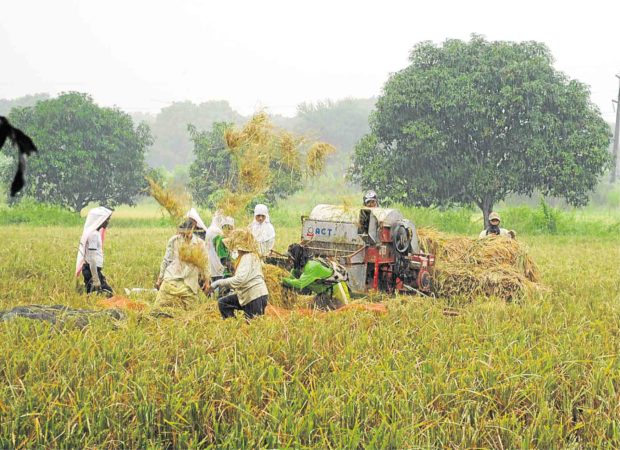Marcos Jr. wants detailed cropping schedule to protect local agri sector

(INQUIRER file photo / ANSELMO ROQUE)
MANILA, Philippines — President Ferdinand “Bongbong” Marcos Jr. on Tuesday said he wants a detailed cropping schedule to ensure that agricultural imports would not harm local production.
According to the Presidential Communications Office (PCO), Marcos made the statement after a briefing with the Department of Agriculture and other concerned agencies where he asked agriculture officials to go into more detail on the cyclical nature of crops in the Philippines to avoid importing products during the harvest season.
The government, Marcos said, must consider the sensitivities of local cropping, particularly their cyclical nature when sourcing products abroad.
“Hindi tayo nag-i-import ng kahit anong produkto pagka maraming production para naman magamit natin lahat ng production na galing sa Pilipinas,” he said, as quoted by the PCO.
(We don’t import products if we have ample supply here so that our supply can be used.)
Article continues after this advertisement“Kung mag-i-import lang tayo, kung talagang may kulang, and that’s what I mean about the cyclical nature of crops, that we have to be sensitive to that,” Marcos added.
Article continues after this advertisement(We will only import products if there is a lack in supply, and that’s what I mean by cyclical nature of crops, that we have to be sensitive to that.)
In response to climate change, Filipino farmers have to change their planting schedule in some areas of the Philippines to take advantage of the moving rainy season, Marcos said, adding it may bring some benefits since farmers can have three croppings a year.
The cyclical nature of agriculture already exists, he said, adding, however, that with the advent of climate change, which complicates things, the sector should adjust accordingly.
According to the PCO, the agriculture, forestry, and fisheries (AFF) sector performed modestly at 0.5 percent last year.
The modest growth was attributed to the positive Gross Value Added (GVA) growth of 2.3 percent in livestock and 6.7 percent in poultry despite the decline in the performance of the crops and fisheries subsectors by -1.1 percent and -3.5 percent, respectively.
Under the Marcos administration’s Philippine Development Plan, the DA is targeting a growth rate of 1.8 percent to 3.3 percent in the agriculture sector from 2023 to 2028.